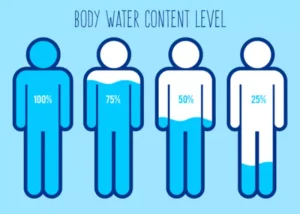-
Address: S.No.58 , 1st Floor , Paras Hub ,
Latur Road, Vasarni , Nanded - 431604 -
Call Us: +91 8799 932 678
info@instachem.co.in

Giving patients the opportunity to practice good eating habits is essential, especially since food addiction can often replace drug addiction. Stimulants (such as crack and methamphetamines) often cause users to stay up for days at a time, creating nutritional deficiencies in multiple areas. To get back on track during detox, eat balanced meals that include protein and sources of omega-3. The omega-3 is thought to provide multiple benefits, including lowering the risk of coronary heart disease and depression. Fish, canola oil, flaxseed, eggs and dairy products are all great sources of this nutrient.
What to Eat: The Foundations of a Healthy Detox Diet
That’s why our chefs and nutritionists are trained to provide a well-balanced diet for recovering drug or alcohol addicts such as yourself who need the right nutrients every day. First and foremost, regular alcohol use over time destroys some of the body’s vitamin stores leading to deficiencies in vitamins B6, thiamine Folic acid as well as more. As a result, you need to eat extremely healthy with plenty of fruit vegetables, and other nutrient-rich foods in order to build up your stores again.
The Importance of Diet in Detoxification
This ability is called neuroplasticity, and it helps us learn new skills, heal from injuries, and deal with new situations. One of the most important factors that affects neuroplasticity is nutrition. Periodic fasting, which consists of fasting for 24-hour periods a couple of times during each week, can mean autophagy occurs at around the 18-hour mark. Periodic fasting also speeds up the process of restoring amino acids. If this is a concern for you, consider periodic fasting if intermittent fasting isn’t helping you as quickly as you’d like. As previously mentioned, insufficient amounts of zinc can negatively impact your skin and appetite and can also reduce your sex drive.
The Three Krokodil Effects Exposed
Before eating any of these best foods for alcohol detox, make sure to consult with your doctor to get professional medical advice if you think there might be any allergy issues. This is why nutrition and a healthy diet are such key components of the recovery process, starting at the beginning with detox. While everyone is different and their nutritional needs are different, certain foods are good for everyone when it comes to regaining a proper nutritional balance during recovery.
However, these foods often lack vitamins to replenish the body with nutrients. The United States Department of Agriculture states that fruits and vegetables are filled with vitamins, dietary fiber, folic acid and potassium. Eating fruits and vegetables can reduce the risk for cardiovascular diseases, certain cancers and Type 2 diabetes. Protein is a vital component of nutrition, particularly in the context of recovery from alcohol dependency. Vitamins are perfectly acceptable to help get your body back on track after giving up alcohol.
Self-Injury Awareness Day and Beyond
- Unravel the connection between alcohol and violence, from domestic abuse to impulsivity.
- Carbohydrates are vital for recovery, as they provide fiber and energy, which the detoxer may be lacking.
- At Acqua Recovery, our nutrition therapy, led by our dedicated Chef Kyria Cropper, goes beyond meals – it’s a culinary journey infused with love and care.
- During detox, your focus will be on reducing your caloric intake and finding balance with foods that nourish your body.
- Alcohol withdrawal symptoms can range from mild to severe depending on a person’s overall health status, and on the amount of alcohol they normally drink.
It involves the body’s natural process of eliminating alcohol from its system. During this phase, individuals may experience a range of withdrawal symptoms, such as fatigue, irritability, and cravings, which can vary in intensity depending on the severity of alcohol misuse. A well-balanced diet during this period can support the body in managing these symptoms and aid the recovery process [1].

Bloody Mary’s
Unfortunately, the most important foods to avoid when overcoming withdrawal symptoms are greasy, fatty food and too much sugar. Some best grains to avoid during alcohol detox are white rice, processed cereal, and anything made with flour, or cornmeal. These options have no filter content which can lead you to feel sluggish after meals.

It’s important to note that it’s best to avoid excessively sweet drinks like soda, teas, or juices sweetened with added sugars. If you want something with a bit of flavor, best diet for recovering alcoholic unsweetened green tea is a great choice. It’s also helpful to minimize caffeine intake, as caffeine is a diuretic and can exacerbate dehydration in early recovery.
How Long Does Addiction Recovery Take?
Your body is able to synthesize some of the amino acids on its own, but there are several you can only absorb from food. Another issue is opioid-induced constipation, which can become severe over time. As the condition worsens, appetite suppression increases and eating can become painful. Stopping opioid abuse and increasing fiber intake is the only way to get back on track after opioids have hijacked your nutrition. Vegetables like spinach, kale, romaine lettuce and other salad greens can provide vitamin B6, folic acid and beta-carotene.
